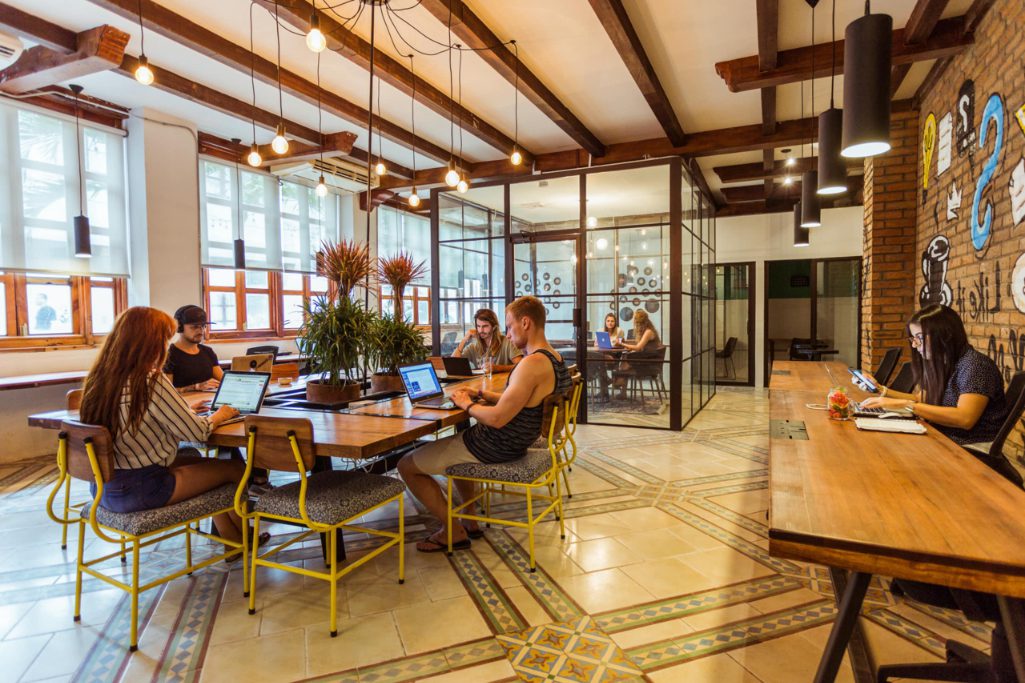Skift Take
"Everything is converging in hospitality," according to one Skift 2019 Megatrend. Selina embodies this Megatrend perfectly in how it pushes the bounds of co-living and co-working. But the company needs to execute its plans on time or else business partners will lose faith.
Selina, the blended hospitality company, has yet to open its first U.S. property, despite having raised a $95 million Series B investment round last year. But on Tuesday it gave more direction on the timetable.
The company now says its U.S. debut will happen in May in New York City. The company will open a 126-bed property in the Chelsea neighborhood. The property will feature a hotel that includes some hostel-like lodging, co-working spaces, eateries, shops, a year-round rooftop, and an art gallery.
In June, Selina promises to open a more substantial property that will be its U.S. flagship at in the Bowery in lower Manhattan. This 63,000 square foot property will host a hotel, co-working spaces, retail shops, restaurants, and an expansive rooftop lounge, plus a recording studio.
Things haven’t entirely gone according to plan, so far. Selina first intended its U.S. première to take place in September 2018 in Florida. It later pushed that back to February 2019. Now it says its first three properties in Florida will open sometime in 2019.
Regardless, the company plans to open more than 15 U.S. locations by 2020, including three in Florida and one in Woodstock, N.Y.
Until now, the Tel Aviv-based company has concentrated on running 45 properties in Latin America and Portugal. With the aid of a separate $150 million investment, it is developing properties in Mexico this year.
To help with its rollout, Selina last year bought a property management system in Argentina called Winks.
COME HEAR SELINA CEO RAFAEL MUSERI SPEAK AT SKIFT FORUM EUROPE
Skeptics may wonder how much Selina, which has about 2,000 employees, actually differs from hotels with arty lobbies and rooftops filled with millennials working on their laptops.
Selina contrasts in a couple of ways, executives said. Most prominently, it often offers truly WeWork-style co-working spaces — meaning, glassed-in areas and “phone booths” for taking calls, for example.
“Major hotel brands don’t offer true co-working spaces on a broad scale,” said Yoav Gery, president of Selina. The seriousness of the offering is why WeWork’s founder Adam Neumann has invested in the company.
Selina also generally provides a broader spectrum of room types than is common at many hotel chains. Its accommodations run from bunk beds in dorm-style rooms to private, premium suites.
Selina also often adds some amenities that aren’t customary in a hotel. “Our Chelsea property will have a “fully-fitted out music studio,” where a guest can record while traveling,” said Gery, naming one example.
Selina’s model is a demonstration of one of Skift’s Megatrends for 2019, which is that “everything is converging in hospitality.” Many hoteliers, hostel owners, co-working spaces, and restaurant brands increasingly look to embed their products in “live, play, work” settings for maximum appeal to a particular urban demographic.
Like the other hospitality companies experimenting with convergence, Selina picks locations where “digital nomads” and “creatives” tend to gravitate, he said.
“We want our Chelsea property to be the ultimate hub for local artists,” said Gery. “We want it to be a place where they eat and socialize and go to display their work.”
COME HEAR SELINA CEO RAFAEL MUSERI SPEAK AT SKIFT FORUM EUROPE
The Daily Newsletter
Our daily coverage of the global travel industry. Written by editors and analysts from across Skift’s brands.
Have a confidential tip for Skift? Get in touch
Tags: co-working, selina
Photo credit: Granada, Nicaragua. Selina, the hospitality startup, has revealed details on its first New York properties, three of which it plans to have open by August 2019. Selina
